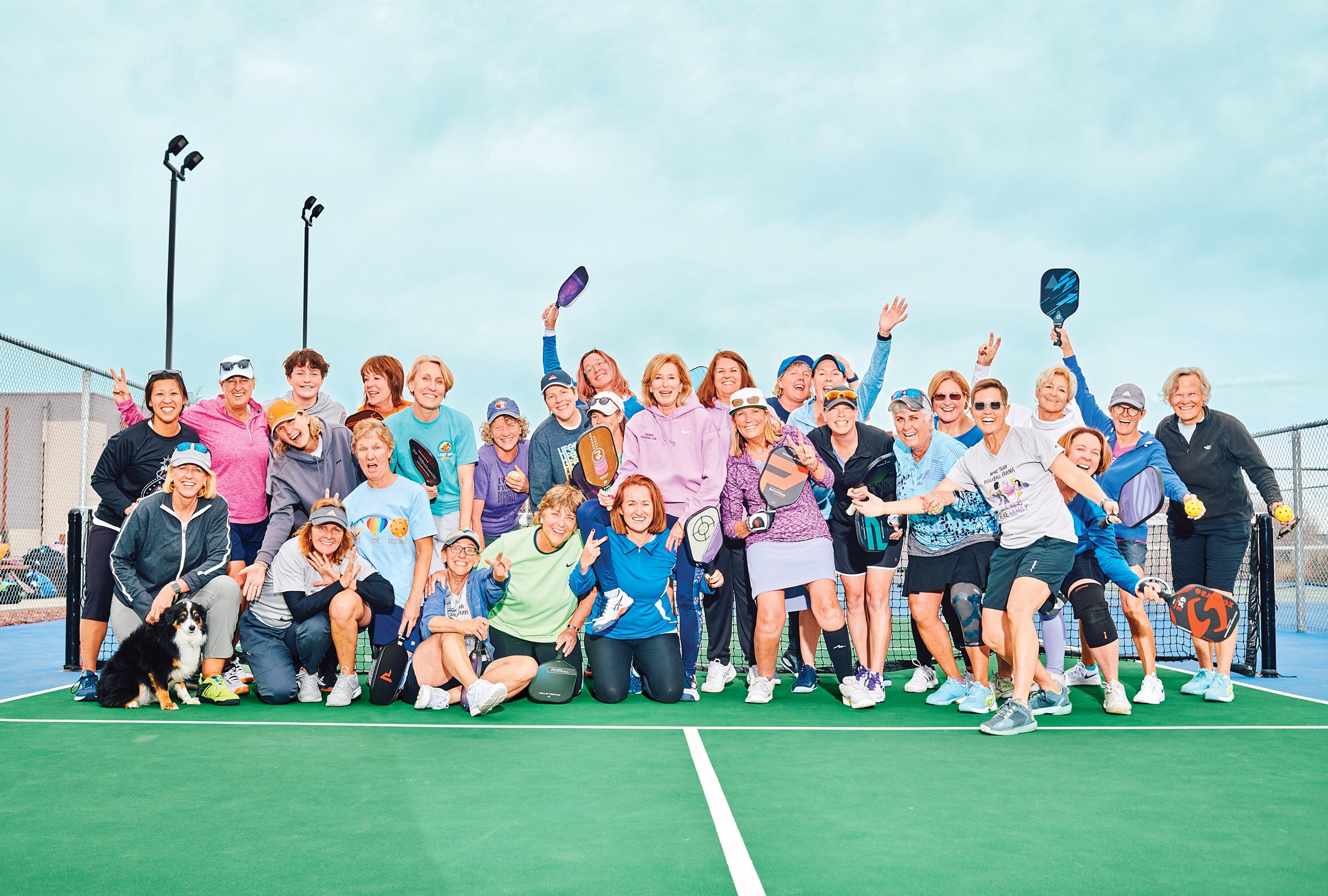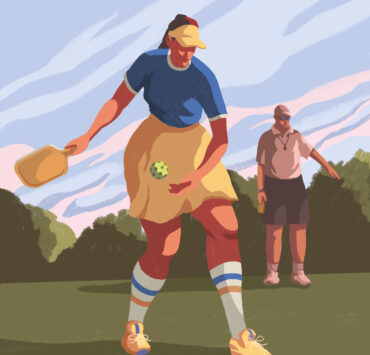WHEN BOULDER COUNTY, Colorado, residents Kim Copeland and Susan Swern started playing pickleball with friends in May last year, the goal was simple: to learn a new sport, socialize, and exercise safely. “With Covid, I think we were all starved to get together,” Copeland, 62, says. “It felt so good. It was like releasing a huge breath of air you didn’t even know you had been holding.” But as their group of 10 women quickly grew to 20 and then 30, Copeland and Swern, who are lesbian, began to think bigger: What if they could create an inclusive space for playing pickleball, and make it a business too? So they launched the Lavender Pickleball Club. “We wanted to start a pickleball community that has an inherent openness—you can be whoever you want to be,” says Swern, 63. (Page 27) “We wanted people to come and feel safe playing, no matter their ability, sexuality, size, or race.”
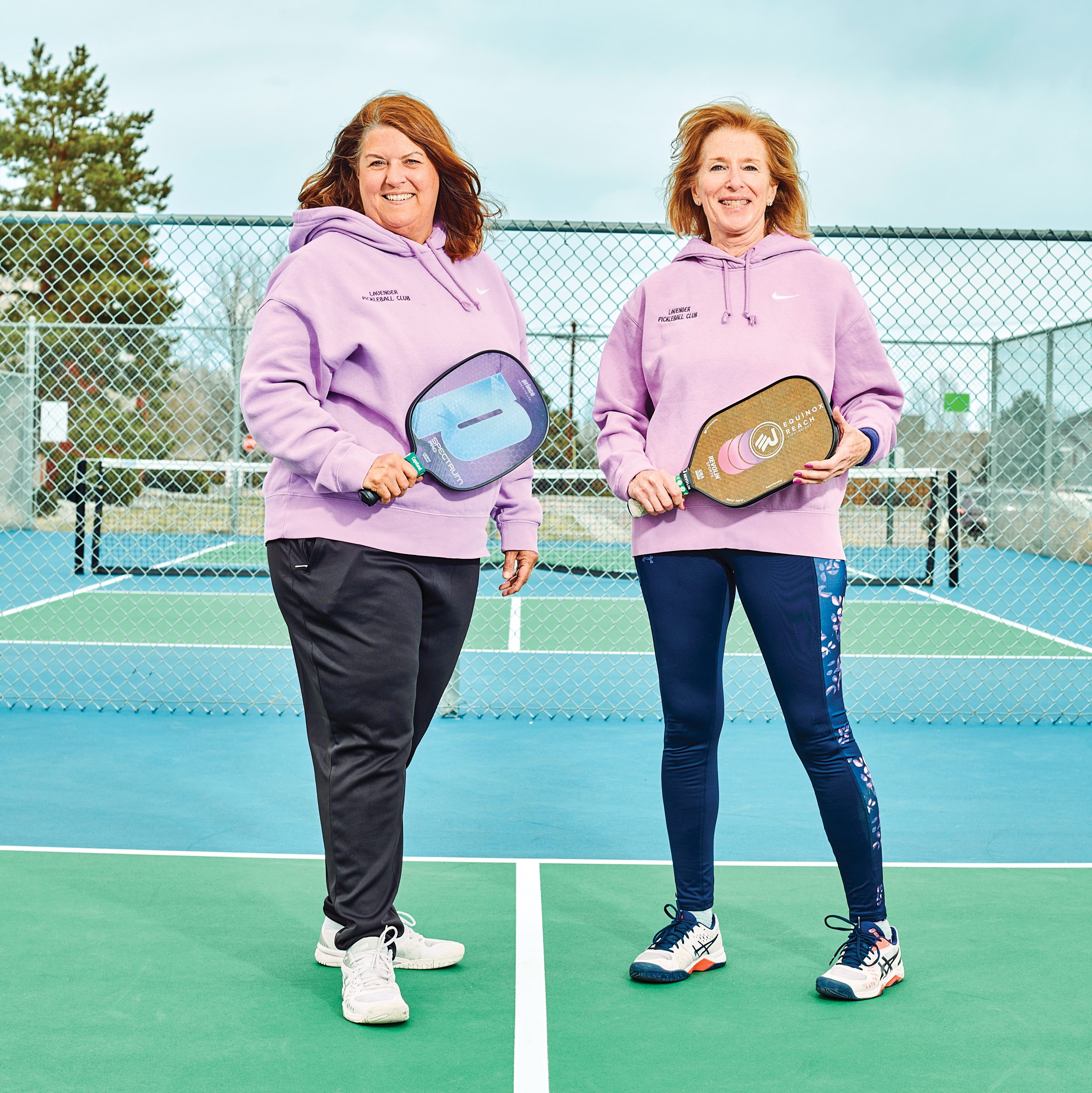
Club founders Kim Copeland (left) and Susan Swern
On October 2, less than three months after starting Lavender, nearly 70 women signed up to play in the Lavender Pickleball Club First Ever Outrageously Fun Tournament, an all-day event for doubles teams. It was a chance, too, for the club to focus on another aspect of their pickleball mission: sustainability. Swern, who also works in environmental justice, says they made sure the event was zero-waste, from recyclable office supplies to prizes like backpacks made out of post-consumer plastic to sponsors like Revolin Sports, which makes eco-friendly paddles.
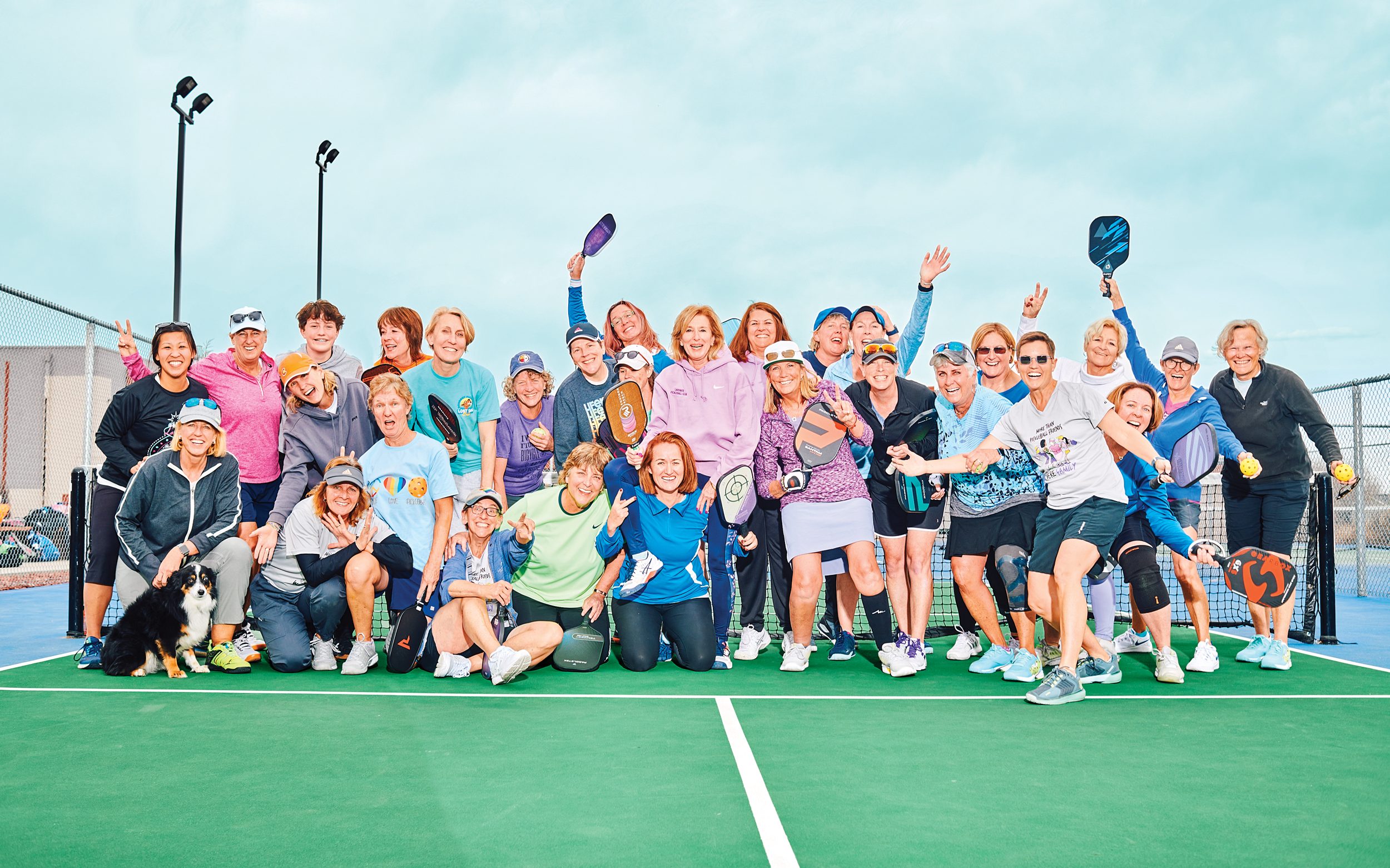
Today, the Lavender Pickleball Club has more than 300 members. And though its doors are open to everyone, so far most of its members are women. The club—which bills itself as a “fun, welcoming, and social space”—also has more than 1,100 followers on Facebook from as far away as Bangladesh. The next step for Copeland and Swern is to expand the Lavender Pickleball Club within the States and internationally. “This is not just a sport—it’s a lifestyle. It’s a way of looking at things,” Swern says. “We just know that there are people around the country who don’t have this family.” Already, one of their three coaches has started a satellite Lavender Pickleball Club in Arizona, where she spends the winters.
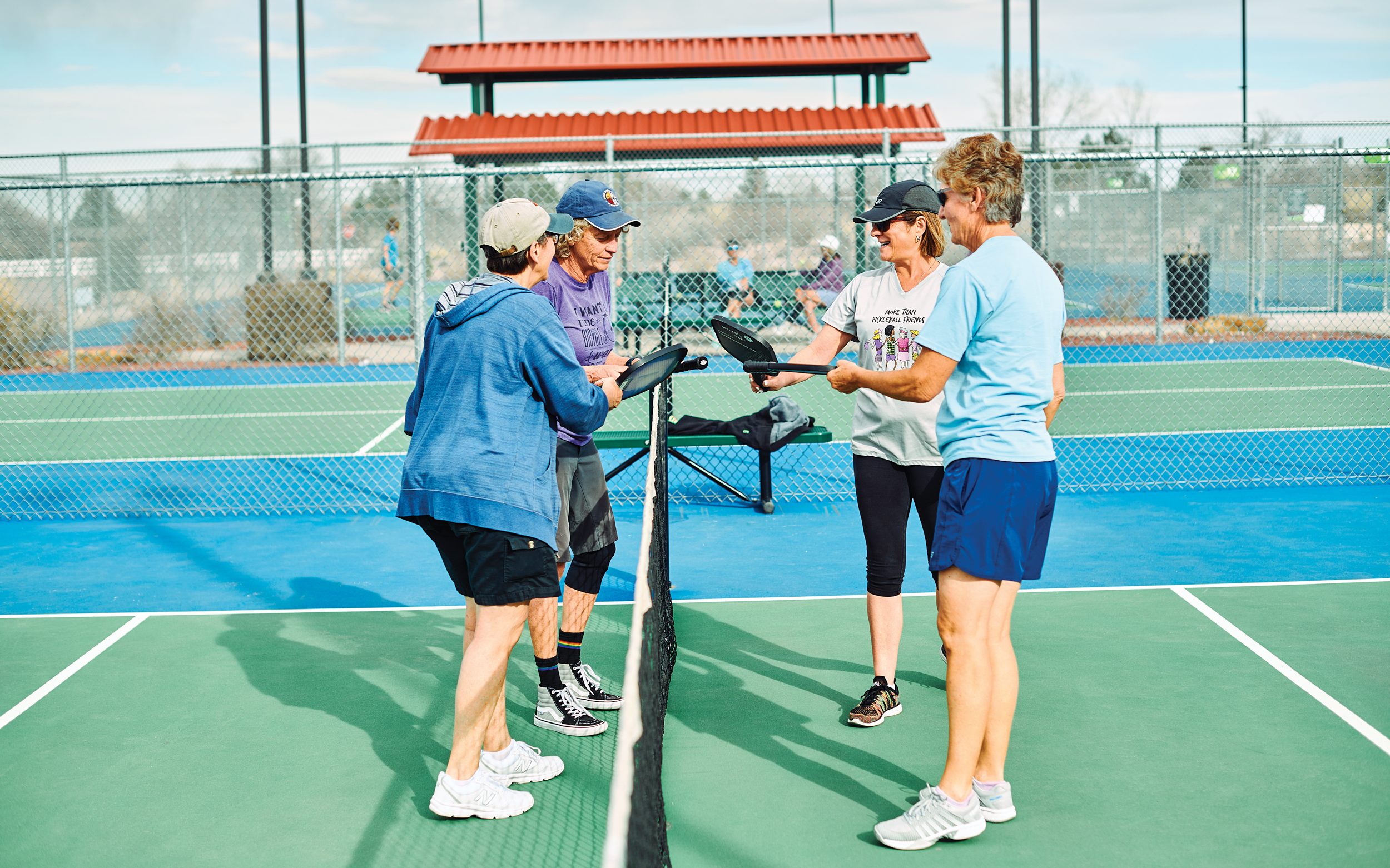
“The reason why so many people come to us,” Swern says, “is that we’re not intimidating.” In addition to being ideologically inclusive, the club does its best to make sure players, especially those who have never set foot on a pickleball court before, feel welcome. They loan paddles to newbies, offer a pickleball crash course for first-timers, and run regular clinics at all skill levels. “When you come here, you do not have to worry about anything. What you look like, how you act, how you play,” Swern says. “You just come and be you.”

